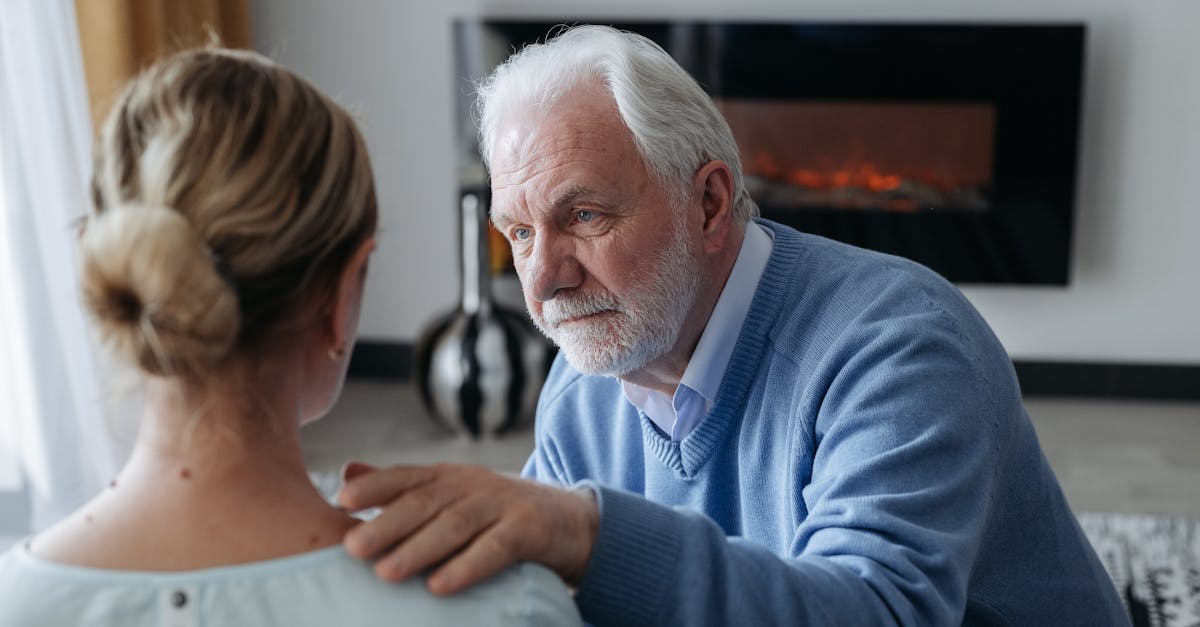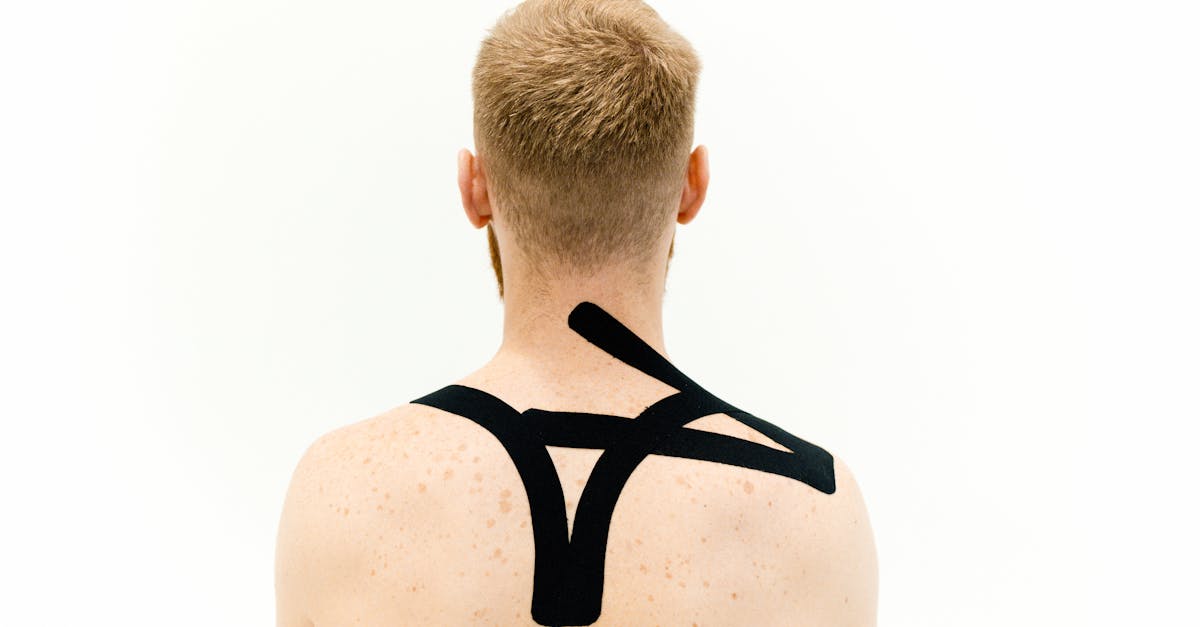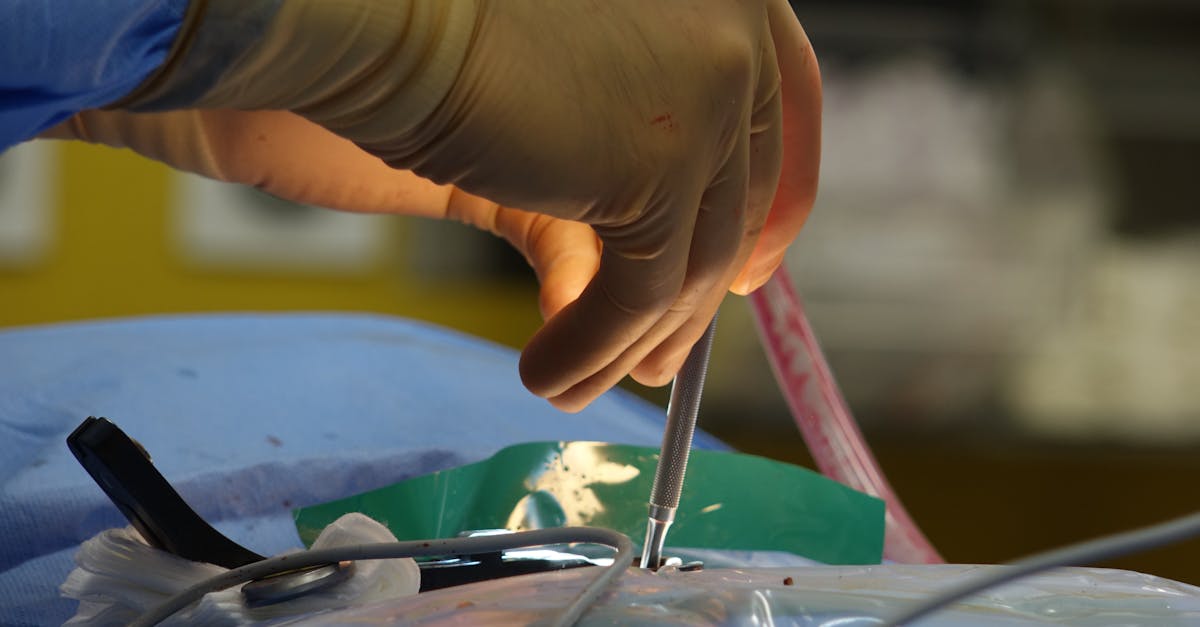Struggling with shoulder pain at night? There’s hope!
In Short: Shoulder pain causing you discomfort while trying to sleep? Discover effective strategies on how to sleep with shoulder pain that enhance comfort and improve your sleep quality. Pulse Align offers innovative, simple solutions focused on improving posture and overall wellness, empowering you to move with more ease and confidence. Reclaim your health and wellness at Pulse Align Clinics. Book your appointment today!
Are you struggling with shoulder pain and seeking effective strategies for sleeping comfortably with shoulder pain?
Studies show that a significant number of individuals experience shoulder pain at night, often stemming from conditions like frozen shoulder or rotator cuff injuries. Discovering the best methods for how to sleep with shoulder pain can transform your rest and overall well-being. At Pulse Align, we specialize in innovative techniques that provide effective shoulder pain relief, combining tailored shoulder pain exercises with a focus on natural postural correction. Our approach enhances your sleep quality and empowers you to reclaim your health, free from the constraints of pain.

“`html
Effective Strategies for Sleeping Comfortably with Shoulder Discomfort
If you’re experiencing shoulder discomfort at night, you’re not alone. Many individuals find it challenging to achieve restful sleep when dealing with tension or imbalance. Learning about posture improvement and how to incorporate neuromuscular recalibration can significantly enhance your nightly rest and add to overall well-being.
Understanding the Pulse Align Approach
At Pulse Align, we focus on fostering muscle tone symmetry and holistic recovery through gentle stimulation techniques. Our method promotes natural processes within the body, allowing it to return to an optimal state where movement is easier and more fluid. Each session is designed to support your body’s ability to recalibrate itself naturally, leading to improved comfort and overall wellness.
Holistic Benefits of Pulse Align Services
Our approach prioritizes the body’s inherent capability to heal and restore balance. Clients have reported enjoying better alignment, improved posture, and an enhanced ability to engage in daily activities with more freedom. It’s not just about relieving discomfort—it’s about embracing a lifestyle where your body feels at ease. Many individuals have noted improvements in their ability to relax after incorporating Pulse Align into their routines. “Since beginning sessions,” shared a satisfied client, “I’ve experienced a noticeable alleviation in my neck tension and can sleep more soundly at night.”
Take the Next Step Toward Better Sleep
Are you ready to explore how Pulse Align can help you achieve restful nights and improved well-being? We invite you to visit our website and discover innovative wellness solutions tailored to your needs. You can find a Pulse Align clinic near you in cities such as Montreal, La Prairie, Terrebonne, Chicoutimi, Charlesbourg, Saint-Jérôme, Châteauguay, Sainte-Marie, Les Escoumins, Granby, and Panama City. Our services are designed to complement your existing healthcare plans, enabling you to achieve balance without replacing your medical care.
Join the Pulse Align community today and experience a more comfortable journey toward enhanced wellness.
- Back Sleeping: Opt for a position that promotes natural alignment.
- Supportive Pillows: Use medium to firm pillows to align the head and neck.
- Avoid Affected Side: Sleep on the non-painful side for better recovery.
- Neutral Position: Maintain alignment between head, neck, and spine.
- Elevate Arms: Place a soft pillow under the arms for additional comfort.
- Gentle Stretches: Incorporate light stretches before sleep for relaxation.
- Quality Bedding: Invest in supportive bedding to enhance sleep quality.
- Establish Routine: Create a calming pre-sleep ritual for better rest.
- Mindful Breathing: Practice deep-breathing techniques to reduce tension.
- Rest Periods: Include short breaks during the day to maintain energy levels.

“`html
Suffering from shoulder pain during the night can significantly impact your overall quality of sleep and daily function. Many people racing against issues like frozen shoulder, rotator cuff injuries, and other chronic conditions often wonder how to relieve frozen shoulder pain effectively while still achieving restful sleep. At Pulse Align, we provide a holistic approach that includes posture improvement, neuromuscular health, and personalized strategies to alleviate discomfort. Here, we delve into effective strategies that can help you sleep comfortably despite shoulder pain.
Understanding the Impact of Shoulder Pain on Sleep
As many individuals realize, shoulder pain at night can reduce the quality of rest and overall well-being. Conditions such as bursitis, tendinitis, and even shoulder impingement could lead to significant discomfort during sleep. When you experience pain while trying to sleep, the quality of your sleep is compromised, creating a cycle of fatigue and discomfort. Here at Pulse Align, we focus on promoting natural balance to encourage better sleep quality.
Optimal Sleep Positions for Shoulder Pain Relief
Choosing the right sleep position is crucial for relieving shoulder pain. Here’s how:
- Back Sleeping: This position promotes natural spinal alignment and reduces pressure on the shoulders, mitigating any pain while helping with core strengthening.
- Side Sleeping: Rest on your non-affected side and place a supportive pillow under the arm of your affected side to minimize strain, particularly important for those experiencing pain when lifting the arm.
- Avoid Stomach Sleeping: This can exacerbate shoulder and neck pain by creating tension in the upper body.
Utilizing Supportive Pillows and Bedding
Investing in quality bedding is essential for enhancing your comfort while sleeping. Medium to firm pillows can help maintain your neck’s alignment and prevent further strain. Consider using specialized pillows designed for shoulder pain relief to foster an environment of healing.
Incorporating Gentle Shoulder Pain Exercises
Integrating shoulder pain exercises into your nightly routine can promote relaxation and alleviate tension. Simple stretches can help release tight muscles, providing relief before sleep. Examples include:
- Trunk Exercises: Engaging your core through gentle movements aids in postural correction and helps alleviate shoulder pain.
- Standing Sleeper Stretch: Stand against a wall and gently extend your arms outward to stretch shoulder muscles.
Implementing Relaxation Techniques for Stress Management
Stress can exacerbate shoulder pain, so it’s essential to integrate mindful breathing or light meditation into your pre-sleep routine. These techniques will not only calm your nervous system but also promote overall recovery.
Booking a Consultation with Pulse Align
Ready to take the next step in your journey towards improved health? At Pulse Align, we are committed to offering personalized exercise plans, shockwave therapy, and treatment approaches tailored to your specific needs. We invite you to book a consultation today and find a clinic near you—whether in Montreal, Panama City, or La Prairie—and experience our innovative solutions to manage shoulder pain effectively. Discover the comfort of a good night’s sleep and reclaim your well-being!
| Strategy | Description |
|---|---|
| Back Sleeping | Promotes natural alignment and reduces pressure on shoulders for a restful night. |
| Supportive Pillows | Utilizing medium to firm pillows fosters alignment and enhances relaxation. |
| Avoid Affected Side | Resting on the non-painful side minimizes strain and encourages better balance. |
| Neutral Position | Maintaining a neutral body posture supports natural recalibration for improved comfort. |
| Elevating Arms | Soft pillow support under the arms alleviates tension and enhances relaxation. |
| Gentle Stretches | Incorporating light stretches before bed promotes relaxation and enhances flexibility. |
| Quality Bedding | Investing in quality bedding enhances overall sleep comfort and contributes to a restful environment. |
| Establishing Routine | A consistent pre-sleep routine encourages relaxation and helps the body adapt. |
| Mindful Breathing | Practicing deep breathing techniques reduces tension and promotes a calming atmosphere. |
| Rest Periods | Incorporating short breaks throughout the day maintains energy and reduces overall tension. |

Transformative Wellness Journeys: Client Testimonials from Pulse Align
“After dealing with persistent shoulder pain that affected my sleep for years, I found solace in Pulse Align’s unique approach. The gentle techniques they employed helped my body to naturally recalibrate and restore balance. I now sleep comfortably, waking up refreshed and ready to take on the day. Living in La Prairie, I feel grateful to have discovered such a transformative service right in my community.”
“In Mont-Royal, finding effective strategies for managing my shoulder discomfort seemed impossible until I came across Pulse Align. Their emphasis on holistic recovery truly resonated with me. Since starting my sessions, I have experienced a remarkable improvement in my sleep quality as my body gradually regained its natural balance. I can now enjoy activities without the constraints of pain.”
“I was skeptical of holistic methods to alleviate my shoulder pain, especially being an athlete in Terrebonne. However, after working with the dedicated team at Pulse Align, I realized that their approach supports the body’s innate ability to heal. Alongside better sleep, I’ve been able to focus more on my performance, something I thought was impossible due to my discomfort.”
“Living in Les Escoumins, I never anticipated that Pulse Align’s gentle yet effective strategies would lead to such significant changes in my life. Not only has my shoulder pain diminished, but my overall wellness has seen a positive shift. I now sleep through the night peacefully, and I attribute this newfound ease to the supportive environment and personalized care from the team.”
“As a resident of Châteauguay, I appreciate how Pulse Align integrates with my existing healthcare. Their focus on holistic recovery has complemented my journey towards wellness. I often find myself sharing my positive experience with friends, highlighting the natural improvements I’ve felt in my sleep and daily life thanks to their tailored treatments.”
“In Saint-Jérôme, I embraced Pulse Align’s approach to managing my shoulder pain and couldn’t be more thrilled. The initial discomfort that seemed unbearable during the night was quickly alleviated through their gentle techniques. I now wake up feeling rejuvenated, empowered to tackle my day. Pulse Align has genuinely reshaped my health journey.”
Discover how Pulse Align can enhance your wellness journey by finding a clinic near you. Explore our services and experience the holistic improvements that our clients have cherished. Visit Our Clinics to learn more about how we work alongside healthcare teams to support clients and their families on their path to well-being and optimal body function.
Are you struggling with shoulder pain at night and seeking effective strategies for sleeping with shoulder pain?
Finding ways to navigate how to sleep with shoulder pain can be a game-changer for those grappling with issues such as frozen shoulder, rotator cuff injuries, or bursitis. Recent studies reveal that many individuals encounter discomfort when trying to find a restful position, often exacerbated by shoulder pain from playing sports or poor posture correction. Pulse Align offers proven methodologies to enhance shoulder pain relief while fostering better posture and overall wellness. By incorporating gentle shoulder pain exercises and mindful adjustments into your nightly routine, you can transform your sleep experience and wake up revitalized.
Finding restful sleep while dealing with shoulder discomfort can be challenging, yet with the right approaches, improvement is within reach. At Pulse Align, we focus on posture improvement and neuromuscular recalibration to promote overall well-being. Our gentle stimulation techniques support the body’s natural processes, fostering an environment that enhances comfort and relaxation.
Pulse Align utilizes innovative methods to promote muscle tone symmetry and help restore functional balance. By focusing on gentle stimulation, we facilitate the body’s ability to recalibrate and return to optimal function, enabling our clients to experience a newfound sense of ease. We understand the importance of addressing discomfort holistically, avoiding direct symptom treatment while enhancing overall health.
The benefits of holistic approaches that embrace the body’s natural healing abilities are profound. Clients report not only improved posture but also a reduction in everyday discomforts, allowing them to engage in their daily activities with greater freedom. For instance, someone seeking to improve posture naturally may discover enhanced alignment and stability through our personalized sessions.
Ready to explore how Pulse Align can enhance your wellness journey? We invite you to book a consultation with us today and find a Pulse Align clinic near you, whether you’re in Montreal, La Prairie, Terrebonne, Chicoutimi, Charlesbourg, Saint-Jérôme, Châteauguay, Sainte-Marie, Les Escoumins, Granby, or Panama City. Our services are designed to complement your healthcare team, helping you achieve balance without replacing existing medical care. Experience the gentle, non-invasive approach of Pulse Align and take a step toward reclaiming your well-being here.
Our Mission
At Pulse Align, our mission is to deliver evidence-based, client-centered treatments that address the underlying causes of pain and dysfunction. By integrating advanced techniques and technologies, we strive to empower each person to take control of their health, ensuring a high standard of care, lasting relief, and an improved quality of life.
Learn more about his approach and available services at www.pulsealign.com and find a location near you here: https://pulsealign.com/our-locations/
Revolutionize Your Pain Relief with TAGMED’s Spinal Decompression Therapy
TAGMED offers an advanced Spinal Decompression Therapy, a non-surgical solution designed specifically to address moderate-to-severe disc issues, including herniated discs and bulging discs. By gently reducing pressure on the affected discs and nerves, this specialized technique helps enhance mobility, alleviate pain, and support your body’s natural healing process. If you’ve reached a plateau with other therapies, discover how TAGMED’s evidence-based decompression approach can help you resume an active, comfortable life.
Have you tried conventional treatments and still struggle with persistent back pain due to a severe disc condition?
The mechanism of action behind TAGMED’s neurovertebral decompression involves applying a controlled, progressive traction force to the spine. This method increases the space between vertebrae, effectively reducing pressure on intervertebral discs and nerve roots. By promoting better fluid circulation in the targeted area, it lowers inflammation and relieves pain, offering a reliable, non-invasive solution for individuals suffering from chronic back issues such as spinal stenosis and sciatica.
This non-invasive approach significantly alleviates chronic pain and symptoms linked to conditions like herniated discs or disc bulges. By reducing pressure on nerve structures and optimizing the fluid circulation around the discs, TAGMED’s therapy can speed up recovery and enhance the quality of life for a wide variety of patients seeking relief from persistent discomfort.
When comparing TAGMED’s neurovertebral decompression technology with commonly used treatments, such as pain medications, corticosteroid injections, or traditional physiotherapy, the distinct advantages become clear. Unlike invasive interventions that carry potential risks, this therapy minimizes medication-related side effects and offers a uniquely safer alternative to patients. Additionally, it may provide a faster path to recovery, making it a compelling choice for those seeking effective, evidence-based methods to tackle chronic pain.
Real-world testimonials showcase the efficacy of TAGMED’s neurovertebral decompression in simplifying patients’ lives. Many have reported lasting pain relief, quicker resumption of daily activities, and a reduced dependence on pharmaceuticals after undergoing this treatment. For instance, one patient shared that their return to an active lifestyle seemed impossible before experiencing the benefits of TAGMED’s therapy, underscoring the tangible results and practical advantages of this therapeutic approach.
Conclusion for Effective Strategies for Sleeping Comfortably with Shoulder Pain
If you’re seeking to improve your sleep while managing shoulder discomfort, Pulse Align offers effective strategies designed with your well-being in mind. From sleeping on your back to using supportive pillows, our holistic health approaches focus on posture correction and creating an optimal sleeping environment that promotes comfort and relaxation.
Many clients have shared their positive experiences with Pulse Align, highlighting significant improvements in their sleep quality and an overall reduction in discomfort. Our gentle, non-invasive methods empower individuals to embrace restful nights and an enhanced experience of life, free from the constraints of pain. Clients have expressed gratitude for the renewed mobility and vitality they have achieved through our personalized care.
Discover the Pulse Align difference today! We invite you to take the next step in your wellness journey by visiting our website or scheduling a consultation. Our focus on natural pain relief and neuromuscular recalibration supports the body’s inherent healing abilities, allowing you to experience life with greater ease and confidence.
Embrace the hope of better sleep and well-being. With Pulse Align, you’re not just managing discomfort – you’re rediscovering a lifestyle of freedom and wellness.

Do you suffer from discomfort that responds little or not at all to conservative treatments?
At Pulse Align, we understand that life’s challenges sometimes result in feelings of discomfort or imbalance. This is why we are proud to present a non-invasive, innovative method designed to help restore the body’s natural balance and posture through gentle, imperceptible pulses. By embracing these gentle techniques, clients often report reduced muscle and joint tension as they embark on a path toward improved well-being in a natural way.
Our approach at Pulse Align doesn’t focus on describing discomfort or conditions directly; instead, we emphasize the power of the body to recalibrate itself naturally. This gentle involvement frequently results in remarkable improvements in comfort and posture, allowing clients to reconnect with their inherent sense of balance. We believe in the body’s innate capabilities to restore harmony under supportive conditions.
Every person’s journey is unique, and we offer a personalized experience at Pulse Align. Our clients often share transformative testimonials, recounting how our gentle strategies have helped them experience noticeable improvements in neck and back tension, enhanced overall wellness, and greater comfort in their daily lives. Their stories resonate with themes of renewal and empowerment, illustrating the incredible impact of our holistic approach.
We invite you to explore our services further by visiting the Pulse Align website, where you can find clinics in locales such as La Prairie, Mont-Royal, Terrebonne, and many others. Booking a consultation for yourself or your family is easy and efficient, ensuring that our gentle, non-invasive methods complement your existing healthcare services. Remember, our philosophy is to work alongside your ongoing wellness journey, enhancing the support you receive while prioritizing your health.
Discover the benefits of a holistic approach with Pulse Align as you embrace the opportunity to promote neuromuscular health, symmetry, and natural well-being. Schedule your appointment online today, and feel confident in our safe, family-friendly environment designed with your holistic wellness in mind.
Frequently Asked Questions
Shoulder Pain
Can massages relieve shoulder pain?
Yes, a gentle massage can release muscle tension, improve circulation, and reduce pain, but avoid abrupt movements.
Does working at a computer contribute to shoulder pain?
A poorly set-up workstation, a keyboard, or mouse placed too far away can cause shoulder tension.
Can an old injury reappear as shoulder pain?
Yes, an old improperly rehabilitated injury or fracture may resurface as chronic pain.
Is rest necessary to relieve shoulder pain?
Relative rest is often recommended, avoiding painful movements but not immobilizing the joint entirely.
Can acupuncture help?
Acupuncture may relieve pain and muscle tension, but effectiveness varies among individuals.
Is ice always recommended?
Ice is useful in acute phases to reduce inflammation, but shouldn’t be applied too long or directly on the skin.
Can I do self-massage with a tennis ball?
Yes, placing a tennis ball between your shoulder and the wall can gently massage sore spots and improve circulation.
Is rotator cuff tendinitis common?
Yes, it’s one of the most frequent causes of shoulder pain, especially in those who perform repetitive arm movements.
When can I return to sports after rotator cuff tendinitis?
After medical advice, once pain is reduced and strength and mobility are restored, usually after a few weeks of rehab.
Are throwing sports more at risk for shoulder problems?
Yes, repetitive throwing (baseball, handball) heavily stresses the rotator cuff, raising injury risk.
Adam Blanc understands that shoulder pain can do more than slow you down—it can impact your entire quality of life. As a Shoulder Pain Awareness Advocate at Pulse Align, he’s dedicated to showing readers that genuine relief is not just possible, but within reach. Drawing on the latest research, Adam combines expert insights with compassionate guidance, inspiring people to move toward greater comfort and mobility. His approach is about more than just managing symptoms; it’s about empowering individuals to rediscover their strength and embrace every moment, free from the constraints of pain.
Medical Disclaimer
The information and advice provided on this site do not replace the advice, diagnosis, or treatment of a healthcare professional. Please note that the author of this article is neither a doctor nor a specialist in a medical specialty as defined by the Collège des médecins du Québec. Manual medicine, functional medicine, and sports medicine as described on this site exclude any medical treatment or diagnosis made by a doctor or medical specialist. Always consult your doctor for any medical questions. For more details, please read our complete Legal Notice.



